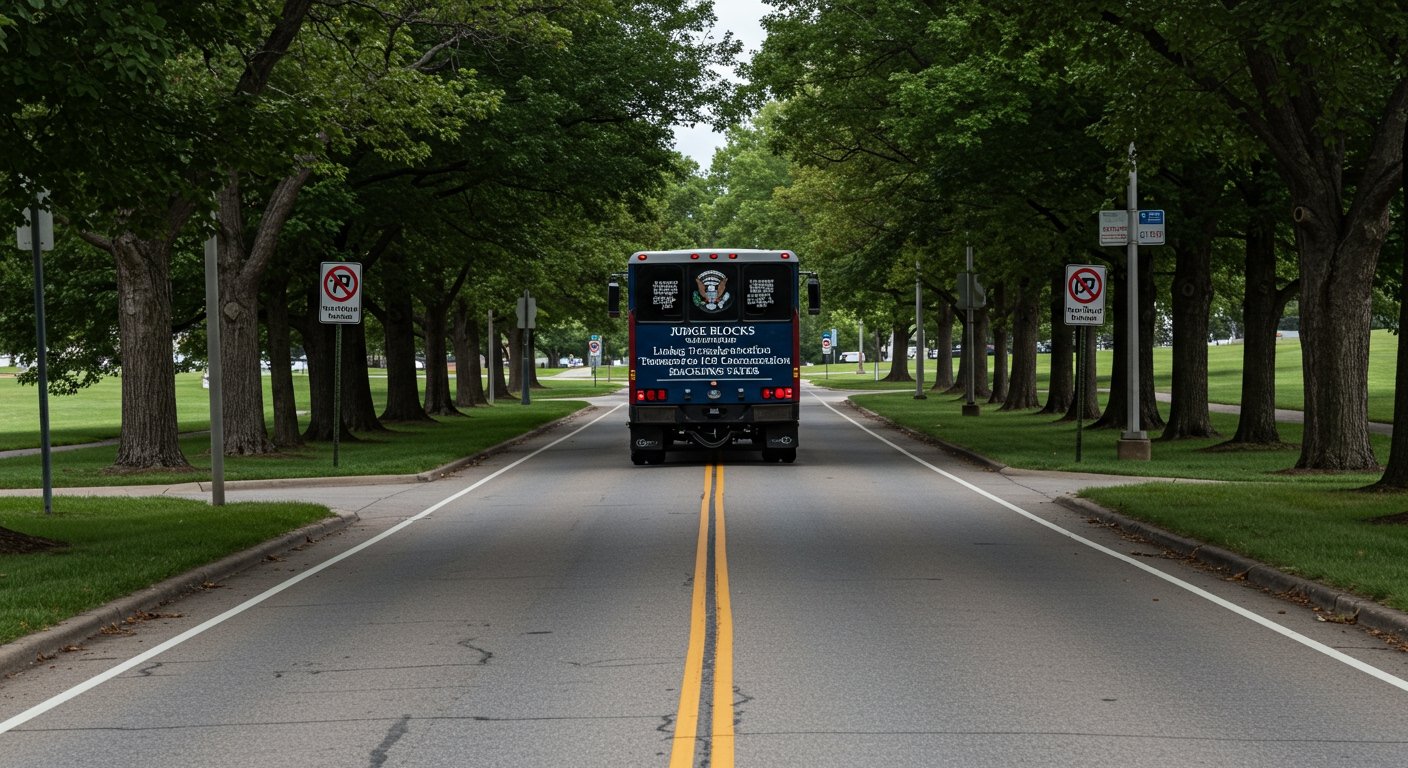PROVIDENCE, RI – A federal judge in Rhode Island has issued a significant ruling blocking a key Trump administration policy that sought to condition congressionally appropriated transportation funding on states cooperating with federal immigration enforcement authorities, including U.S. Immigration and Customs Enforcement (ICE).
U.S. District Judge John McConnell on Thursday, June 20, 2025, granted a preliminary injunction preventing the administration from enforcing the new immigration rules against a coalition of twenty plaintiff states. The states had challenged the policy, arguing it overstepped the administration’s authority and unlawfully attempted to coerce states into participating in federal immigration enforcement.
The Core of the Dispute
At the heart of the legal challenge was a Trump administration initiative aiming to leverage federal funds to pressure so-called “sanctuary” jurisdictions – states, counties, or cities that have policies limiting cooperation with federal immigration authorities. By threatening to cut off crucial transportation funding, the administration sought to compel local law enforcement agencies to comply more fully with ICE requests, such as detaining individuals for potential deportation.
Transportation funding, vital for maintaining and improving infrastructure across the nation, is typically allocated by Congress. The administration’s new rules effectively added an immigration enforcement requirement as a condition for states to receive these funds, a move the plaintiff states argued was outside the scope of the Department of Transportation’s authority and not authorized by congressional statute.
Judge McConnell’s Reasoning
In his ruling, Judge McConnell sided firmly with the twenty plaintiff states. He determined that the administration’s policy was “arbitrary and capricious,” a legal standard indicating a decision made without a rational basis or contrary to law. The judge found the policy lacked sufficient specificity regarding how states were expected to cooperate with federal immigration authorities, leaving states without clear guidelines on compliance.
Crucially, Judge McConnell also concluded that Congress had not granted the Secretary of Transportation, Sean Duffy, the authority to impose immigration enforcement conditions on transportation funds. This finding undermines the legal basis of the administration’s attempt to link the two disparate areas of state governance – transportation infrastructure and immigration enforcement.
The judge’s decision highlighted the principle that the executive branch cannot unilaterally attach conditions to congressionally appropriated funds without clear statutory authority. The ruling reinforces the separation of powers, suggesting that adding new, unrelated requirements for states to receive funds is a power reserved for Congress, not the Secretary of Transportation.
Broader Context and Administration Strategy
This case is one piece of a larger pattern under the Trump administration of using the power of the federal purse to influence state and local policies, particularly concerning immigration. The administration has repeatedly sought to cut off federal funding to “sanctuary” jurisdictions, prompting numerous legal battles across the country.
Opponents of these policies argue that they infringe upon states’ rights, create distrust between immigrant communities and local law enforcement (potentially hindering public safety), and force states into unfunded mandates related to federal responsibilities.
State Reactions
The ruling was met with praise by officials from the plaintiff states. California Attorney General Rob Bonta, whose state was one of the twenty challenging the policy, issued a statement applauding Judge McConnell’s decision.
Attorney General Bonta characterized the President’s actions as a direct attempt to “coerce state and local governments into doing his bidding” by withholding essential funding. He argued that such tactics undermine the principles of federalism and attempt to force states to divert resources towards federal immigration priorities rather than their own, distinct needs and policies.
Implications of the Preliminary Injunction
The preliminary injunction means that, for now, the Trump administration is barred from enforcing the specific rules linking transportation funding to ICE cooperation in the plaintiff states while the larger lawsuit proceeds. This allows the twenty states to continue receiving their allocated transportation funds without being compelled to alter their immigration cooperation policies.
The ruling does not definitively end the legal challenge, as it is a preliminary measure. However, it signals that the states have a strong likelihood of succeeding on the merits of their case. The administration could appeal the injunction, potentially escalating the legal battle to higher courts.
The decision is seen as a significant victory for states asserting their autonomy and pushing back against federal attempts to condition funding on compliance with national immigration policies. It underscores the complex legal landscape surrounding immigration enforcement and federal-state relations in the United States.





